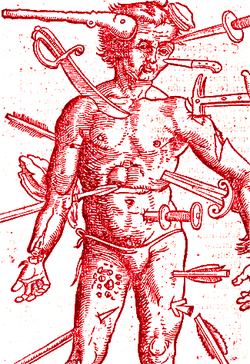He thought there were fish in the trees. He could see the sun glinting on their scales. He never smelled them, though, so he knew they weren’t dead. All day at work, he stared out the window—he could just see them over the top of his cubicle—until Jen came and told him they needed for him to switch desks with Tim (since Tim was out) while maintenance repaired the air vent just over his desk. He sat in misery—really, it was worse than the other day when he’d typed something especially vitriolic on his blog and waited for the fallout. All week, he waited, until they finished the repairs. Then, he heard that Tim wasn’t coming back. He knew he couldn’t ask them to move him back. Besides, he had an actual office now. Wasn’t that a good thing?
--CL Bledsoe is the author of the young adult novel, Sunlight, two poetry collections, _____(Want/Need), and Anthem, and a short story collection called Naming the Animals. A poetry chapbook, Goodbye to Noise, is available online at www.righthandpointing.com/bledsoe. A minichap, Texas, was published by Mud Luscious Press. His story, "Leaving the Garden," was selected as a Notable Story of 2008 for Story South's Million Writer's Award. He’s been nominated for the Pushcart Prize 3 times. He blogs at Murder Your Darlings, http://clbledsoe.blogspot.com Bledsoe has written reviews for The Hollins Critic, The Arkansas Review, American Book Review, The Pedestal Magazine, and elsewhere.

 RSS Feed
RSS Feed
